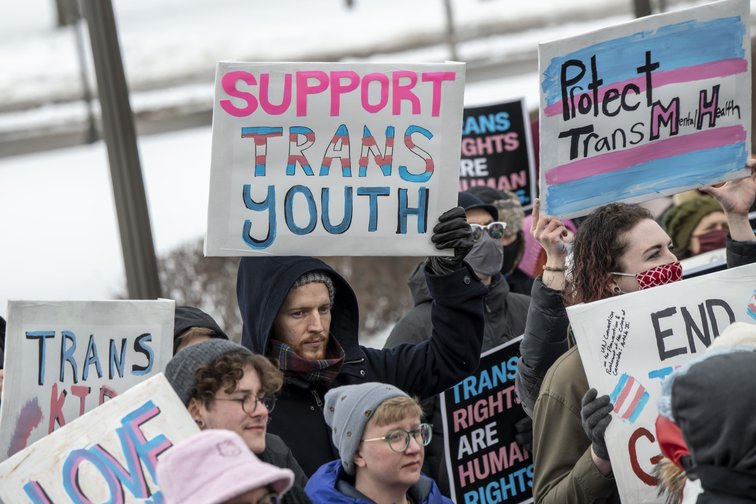Now, what’s going on with these numbers is almost certainly not a reflection of such stark differences in the LGBTQ population in Republican-controlled states versus Democrat-controlled states, or of actual sharp increases in the LGBTQ population generationally that are oddly concentrated in blue states. Having said that, we do know anecdotally that some LGBTQ Americans have moved from red states to blue states to escape persecution (an option that for many is not feasible).
Instead, these numbers represent a generational shift in values and willingness to self-identify as queer, as well as the relative sense of safety or lack thereof that queer people feel in the different social climates that exist across America.
But some of the report’s other findings indicate that the rights gains made in the 20th and 21st centuries, and the degree of safety younger queer Americans have felt to be out and open, is now at risk. Overall, 76% of Americans support a broad formulation of LGBTQ nondiscrimination protections in housing, employment, and public accommodations. That is, to be sure, a robust majority. However, that number is down four percentage points from 2022.
At the same time, fewer Americans oppose allowing small business owners to discriminate against LGBTQ people than they did previously – a decline from 65% in 2022 to 60% in 2023.
These shifts in a year’s time may not be massive, but they could represent “a canary in the coal mine” according to PRRI’s CEO Melissa Deckman, as Kathryn Post reports for Religion News Service. And there have been larger shifts among some more conservative demographics, including on support for same-sex marriage.
For example, Hispanic Catholic support for same-sex marriage fell from 75% in 2022 to 68% in 2023, and this is occurring at the same time that Hispanic support for the GOP is increasing. Meanwhile, white evangelical support for same-sex marriage remained essentially the same (37% vs 38%), but their opposition to same-sex marriage was already so strong that the lack of a significant shift is hardly surprising.
It’s clear any move the illegitimate Supreme Court may make over the next few years to roll back LGBTQ rights – including and especially the right to same-sex marriage, which is likely to be overturned – will be unpopular. But in a country well down the road to minority authoritarian rule, relatively small declines in support for LGBTQ rights still matter, perhaps above all for state and local battles. And as the contrast between self-identified queer Americans in red states vs blue states shows, a more hostile, discriminatory climate for us at the federal level will likely lead more of us to go back into the closet and also to a further erosion of public support for us.
Unfortunately, the human rights of any marginalised group are never a given and must be continually fought for. Or, as Deckman put it: “This data shows you that that assumption of more progressive and accepting attitudes toward LGBT Americans shouldn’t necessarily be taken for granted.”
Even if LGBTQ issues aren’t the focal point of the 2024 presidential election, if Democrats lose the presidency and Congress, it won’t be long until we will find out exactly how thin and fragile public support for the LGBTQ community really is.



Comments
We encourage anyone to comment, please consult the oD commenting guidelines if you have any questions.